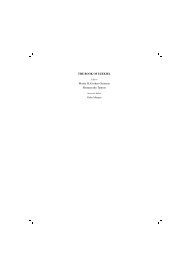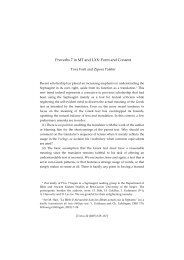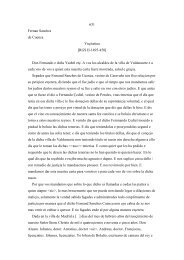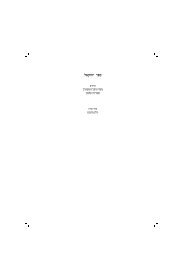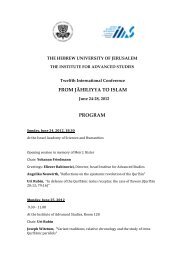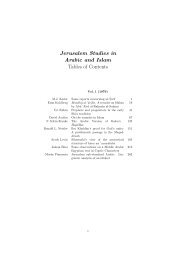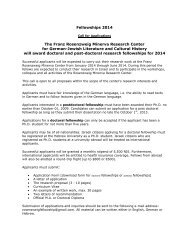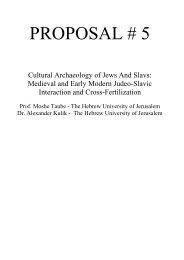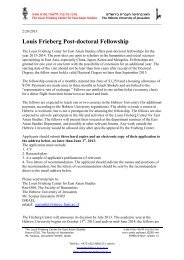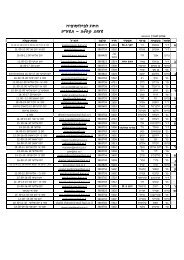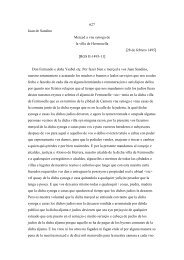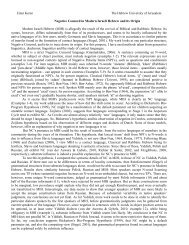Baber Johansen
Baber Johansen
Baber Johansen
Create successful ePaper yourself
Turn your PDF publications into a flip-book with our unique Google optimized e-Paper software.
22<br />
most of them are acts of charity or acts considered to be useful for<br />
members of society (e.g.: loans without interest).<br />
Rather than using a theoretical concept, in this case deontology, in order<br />
to establish a negative check-list denying the existence of an Islamic law,<br />
Islamic cult, and Islamic ethics, we should focus on the complex<br />
character of the notions through which Muslim scholars structure their<br />
debates, the way in which the content of these categories develops over<br />
the centuries and how the concept of social morality is distinguished<br />
from the cult and at the same time related to the aspiration to come closer<br />
to God. NawawÐ’s and SarakhsÐ’s texts on the acts of qurba that are<br />
accessible to Muslims and non-Muslims may be keys to a better<br />
understanding of the difference between cult and social morality. Ibn<br />
ÝÀbidÐn’s statement that intellectual investigation on how to reach the<br />
cognition of God should neither be considered a cultic act nor an act of<br />
qurba, indicates that this jurist conceives of a space of intellectual<br />
activity different from cultic acts and social morality. Deontology, while<br />
often being a helpful theoretical tool for the analysis of one-sided<br />
obligations is misleading when it is used as an overarching category that<br />
denies the existence of law, cult, and ethics in Islam. If used in this way,<br />
it renders unthinkable many of the complex structures of Muslim law,<br />
ritual, and ethics. 72<br />
VI.2: Theology and law: a division of labor<br />
In the secondary literature one comes occasionally across the assumption<br />
that Islamic law is a theological discipline. 73 In the source texts of<br />
Islamic law one can often see how legal scholars take their distance from<br />
a theological approach to the law. This distancing does not necessarily<br />
imply a rejection of theology. The most systematic analyses of this<br />
relation base the division of labor between the two disciplines on the<br />
differences in methods and competencies and on the criterion of<br />
specialization and expertise.



